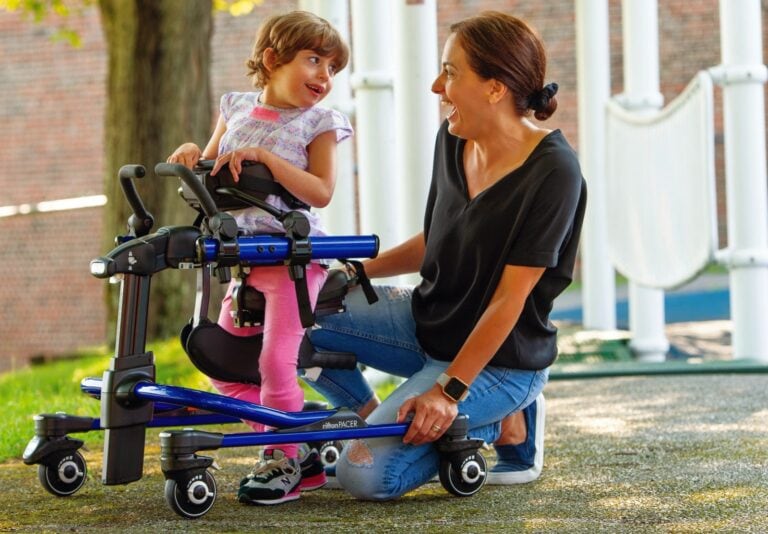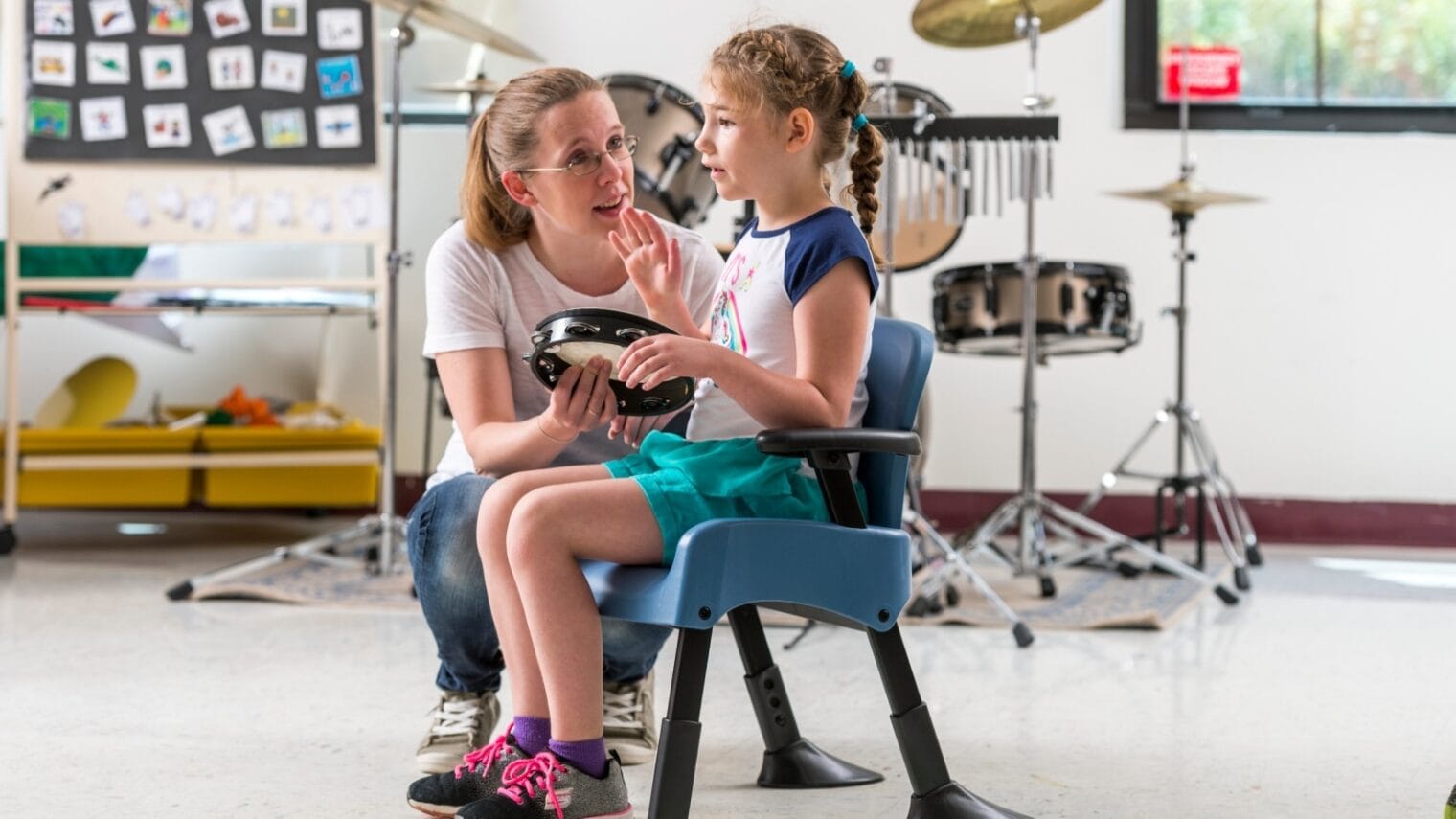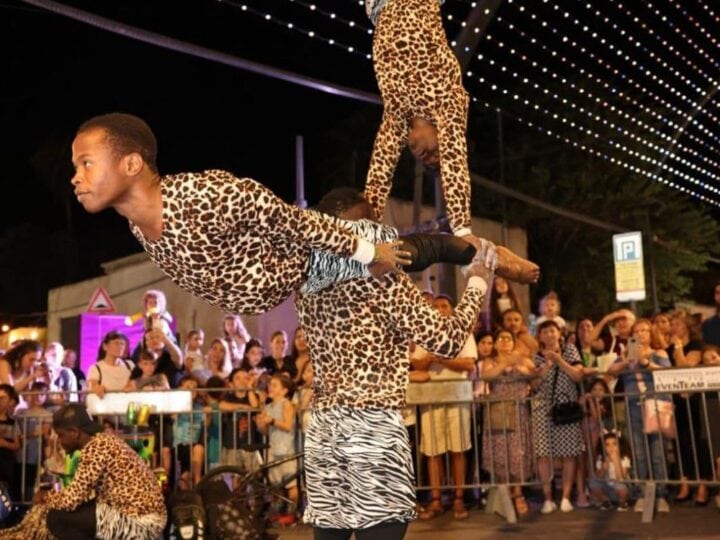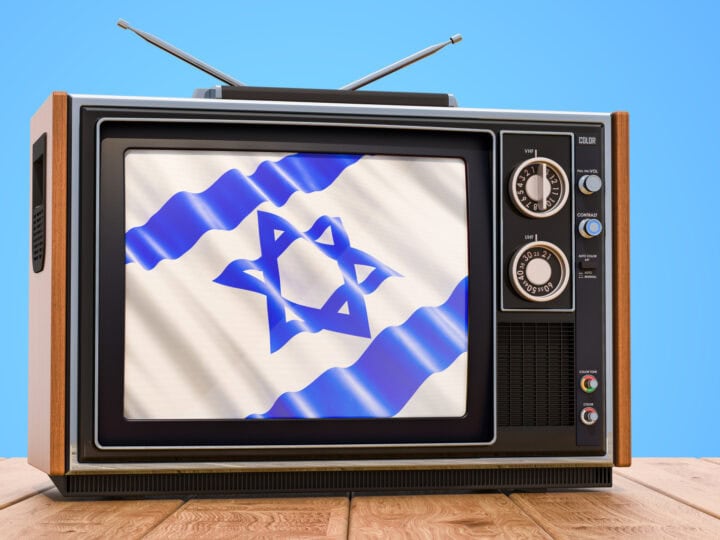During normal times, physical therapist Roni Malka makes house calls to 16 children with severe motor disabilities in seven southern Israeli locations including Gaza border communities.
These are not normal times.
Following the October 7 Hamas attacks that led Israel into a war, many of these families are sheltering in hotels or other temporary lodgings too far for Malka to travel. Others remain at home, in places too dangerous for her to go.
The few she continues to treat, in Beersheva and Ofakim, are living under fearful conditions.
“Last week I was doing therapy with a child in bed. She cannot walk. She has six siblings, including one with autism. The mother had just returned after her night shift as a nurse, and the father wasn’t home. All of a sudden, there was [an air raid] alarm and we had to take all the kids into the protected room,” Malka tells ISRAEL21c.
“Two of us had to carry the [bedridden] girl and it was very hard. We did it, arriving seconds before the boom. But the family has this kind of situation more than once a day and usually I am not there to help them.”
Malka works for the Therapists on Wheels program of the Malki Foundation, a charitable organization enabling children with severe disabilities to live at home with their families.
Therapists on Wheels visits are essential to this goal in the geographic and socioeconomic periphery, including western Negev communities near Gaza, where access to therapy is limited.
“These kids need PT at least once a week,” says Malka.
Challenges of war
War inevitably presents intense challenges to people with disabilities and their caretakers, whether they live at home or in residential facilities.
A variety of Israeli organizations have stepped up to this challenge, for example the Emergency Special Needs Assistance portal that matches callers with the right resources for their situation; and Access Israel’s Purple Vest Mission supporting people with physical disabilities and the elderly during the war.

Just 12 miles of the Gaza border, ADI Negev-Nahalat Eran rehabilitation village has procedures in place to transport its 170 residents with severe disabilities to the village’s protected spaces during air raids and care for them around the clock despite a war-related staffing shortage.
For individual families like those assisted by the Malki Foundation, managing the care of a disabled child is exceptionally challenging. Those displaced from their homes often cannot access the equipment and services needed, and their other children need extra attention during this unsettled time.
“As the war started, we tried to get hold of all the families we help,” says Ely Cohen, director of programs at the Malki Foundation.
Twenty client families and four therapists – including Roni Malka — live in a 15-kilometer radius of the Gaza Strip in towns such as Nahal Oz, Netiv Ha’asarah, Netivot, Sderot and Kfar Aza. Others live in Ofakim, Ashkelon, Ashdod, Beersheva and other southern cities regularly targeted by missiles.
“Thank God, all our families are physically okay but the trauma will be with them for a long time,” Cohen says. “When you have 15 seconds to get to the mamad [protected room] and you have a child with disabilities and other kids too, you can imagine what this means.”
They are terrified
“In Ashkelon, one family is basically living in the mamad but there’s no room for [the disabled child’s special] bed so he’s sleeping on a mattress. When an alarm went off recently, the child rolled off the mattress and hurt himself. They had to rush him to the hospital. It just gives you a sense of how stressful this is.”
Another Malki Foundation client family reported that a missile totaled their car, which was outfitted with a lift for their child’s wheelchair.
“The government paid for them to get a new car but they have to order it and the dealer might not get it for months. Then it has to be modified. So they are homebound with this child for months, and they are terrified,” Cohen says.
One family that Roni Malka works with in Ashkelon wants to shelter elsewhere because of the danger but isn’t eligible for government assistance and cannot afford to relocate on their own. Meanwhile, the disabled child is not getting any treatment because Malka can’t get there.
Malka, too, has personal stress. Her son, a soldier who was at the music festival where 260 people were massacred by Hamas, is now serving in Gaza.
She lives between Netivot and Sderot. “Living here is very hard now; you hear the bombs in Gaza so it’s like sleeping in a war zone.”
A Malki Foundation speech therapist lives in Kfar Aza, 1.5 kilometers from the Gaza border. She was in her mamad for 20 hours with her 10-month-old baby and other family members until the IDF rescued them. Thirty of their neighbors were killed.
“We are in touch with our therapists on a daily basis to be a source of support and sharing,” says Cohen.
Born out of terrorism
The founders of the Malki Foundation understand terrorism all too well. The organization was born of just such a tragedy.
Fifteen-year-old Malka Chana Roth (“Malki”) was one of 16 people killed in a Palestinian terror attack at the Sbarro pizzeria in Jerusalem on August 9, 2001. Malki helped her parents care for a severely disabled younger sister and volunteered to work with other children with special needs.
Her parents, Arnold and Frimet, founded the Malki Foundation to help ease the burden on families in Israel raising a child at home with extreme special needs.
Cohen says that the foundation helps any Israeli child needing its services, Jewish or Arab. “We even have an Arab therapist, an amazing guy who treats mostly Bedouins but also Jews. This is what the Roth family wants.”
In addition to Therapists on Wheels, the Malki Foundation offers Therapy at Home in big cities where families have access to therapists but struggle with the cost.
“We subsidize 85% of the treatment. It simplifies their complicated lives and empowers the parents to take control of their child’s treatment,” says Cohen. The foundation also offers long-term loans of special equipment for mobility, accessibility and homecare.
“If the Malki Foundation’s services were not available, many of those families would have no alternative but place the child in institutional care,” he says.
Altogether, the foundation serves 87 children. “We were planning to get to 100 by the end of the year, but we are slowing the onboarding process now,” Cohen tells ISRAEL21c.
“Now we’re in a war that began explosively and no one can say when it will end.”
For more information, click here.

















